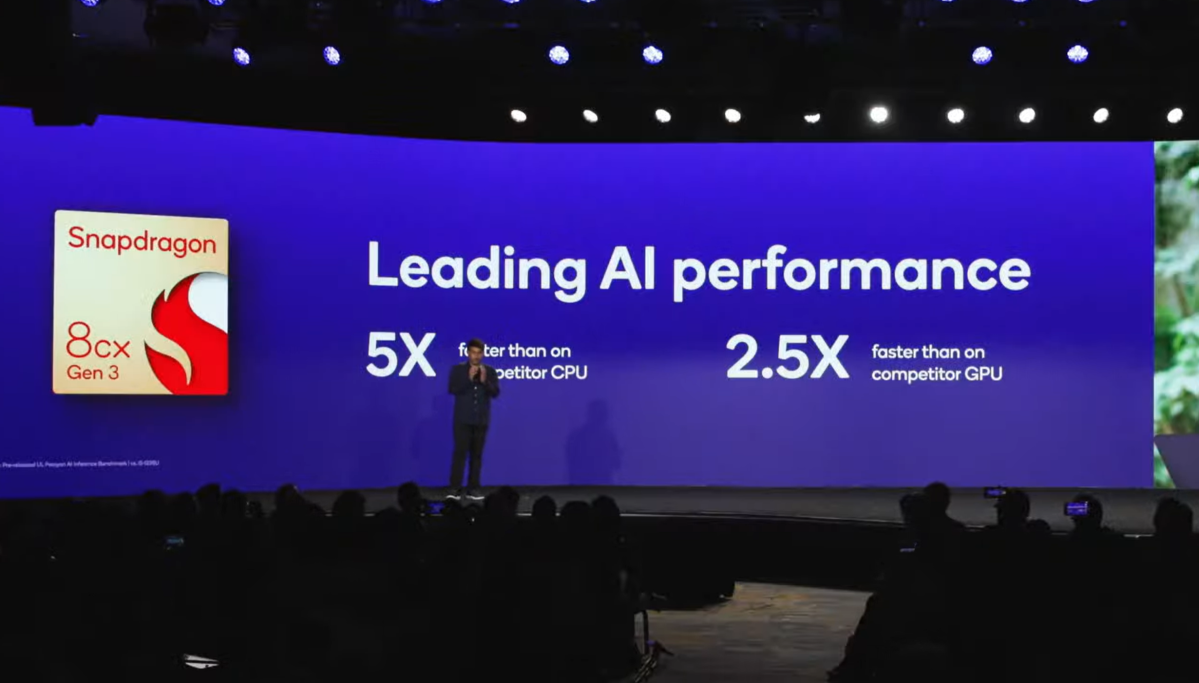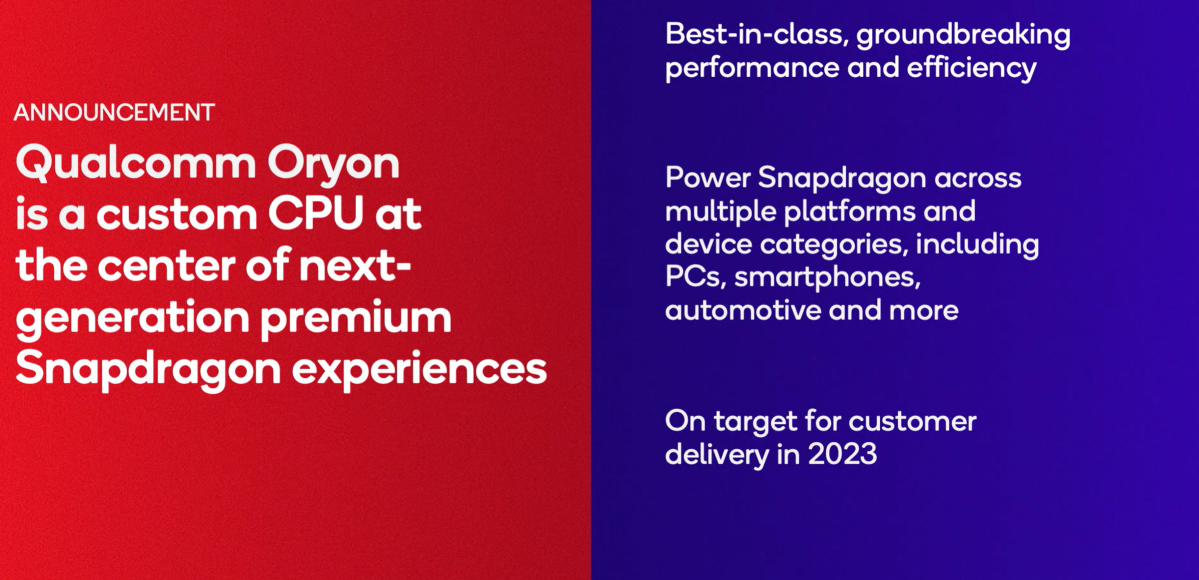Qualcomm dubs Nuvia CPU ‘Oryon,’ on track for 2023
Qualcomm subtly adjusted its marketing strategy for its PC compute business on Wednesday, naming its next-gen CPU “Oryon” and claiming that the company’s goal was to “bring the best of the smartphone to your laptop.” Qualcomm didn’t announce a new PC CPU chipset, however.
Qualcomm wasn’t expected to show the fruits of its Nuvia acquisition, revealing earlier this year that the chips are due in late 2023. It might be a small thing, but Qualcomm executives said that the Oryon chips would ship in 2023, sans the “late” qualifier.
Qualcomm executives didn’t address an unexpected lawsuit by the company’s IP provider, Arm Ltd., against Qualcomm earlier this year. That would seem to put Qualcomm’s development of its next-gen Nuvia / Oryon chips in jeopardy. Qualcomm executives didn’t show any performance estimates of the new Oryon cores, and seemed reluctant to talk about them—perhaps restricted by Qualcomm’s legal department.
AI-powered experiences within Windows
In any event, Qualcomm executives seemed eager to emphasize the new “experiences” that come with Arm chips, powered by artificial intelligence. Qualcomm’s Snapdragon 8 Gen 2 smartphone chips include a new “Hexagon link” that helps the Snapdragon accelerate AI functions, and the Snapdragon chips’ AI functions help power everything from improved photos to better connectivity.
On the PC, Snapdragon chips have struggled to keep up with X86 chips from AMD and Intel in terms of raw performance and compatibility. We liked the recent Surface Pro 9 (5G), which features Qualcomm’s co-designed Microsoft SQ3 chip, but buying a Windows on Arm PC has always come with an understanding: Stick close to the core group of Office/Microsoft 365 apps and Edge, and the device will do its best. (In the SP9 (5G)’s case, we believe the performance on those apps is enough to recommend it.) But go too far afield into other, X86 apps, and the performance will suffer.
What the SQ3’s AI processor can offer, however, is Windows Studio Effects, a set of AI-powered “experiences” that range from noise filtering to background blurring, plus an AI-powered technique where your eyes will appear to be always on the screen during video calls. Those effects require a dedicated AI core, which only Qualcomm can provide right now. (Intel’s upcoming “Meteor Lake” chip may close that AI gap, however.) Adobe also announced a further collaboration with Qualcomm, to write more native Arm apps for its Creative Cloud suite.
The message? AI will overcome any shortcomings Qualcomm has in terms of CPU performance.

Mark Hachman / IDG
“Our vision is to drive the convergence of mobile and PC, bringing the best of the smartphone to your laptop,” said Kedar Kondap, senior vice president and general manager of Compute and Gaming at Qualcomm, in a statement.
Kondap brought Gerard Williams, senior vice president of engineering from Qualcomm, on stage with him at the Snapdragon Summit in Maui to talk about Oryon—a presentation that lasted about a minute.

Mark Hachman / IDG
“Qualcomm Oryon is the first part of this journey, and the best-in-class CPU will revolutionize the industry with fast, powerful, and efficient performance for a new era of premium tier Windows PCs,” Williams said. “Even better, Qualcomm Oryon will play a key role in our one-technology roadmap and power Snapdragon across multiple platforms, and device categories. From mobile, to XR, to compute, and more. I cannot wait for you to experience this new technology, which is on target for customer delivery in 2023.”
Williams then introduced a series of video endorsements from Asus, Acer, Lenovo, and Samsung—though whether those companies will ship PCs based upon Oryon, they didn’t say. Guess we’ll have to wait until 2023 to find out.
For all the latest Technology News Click Here
For the latest news and updates, follow us on Google News.
